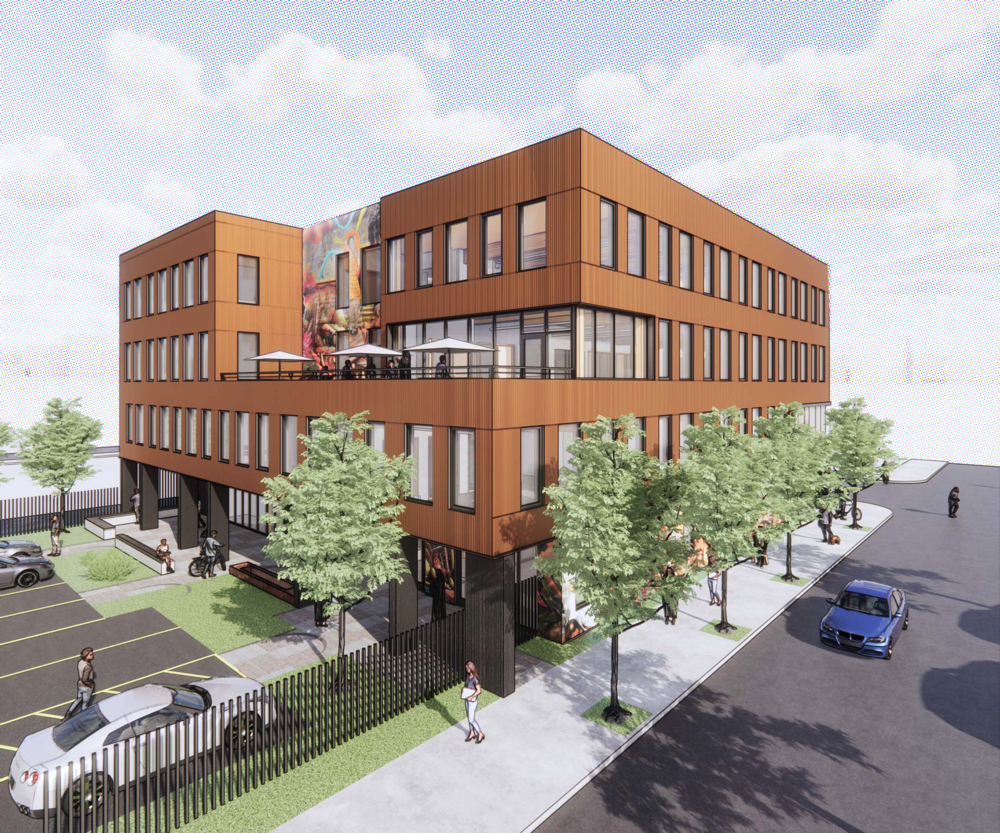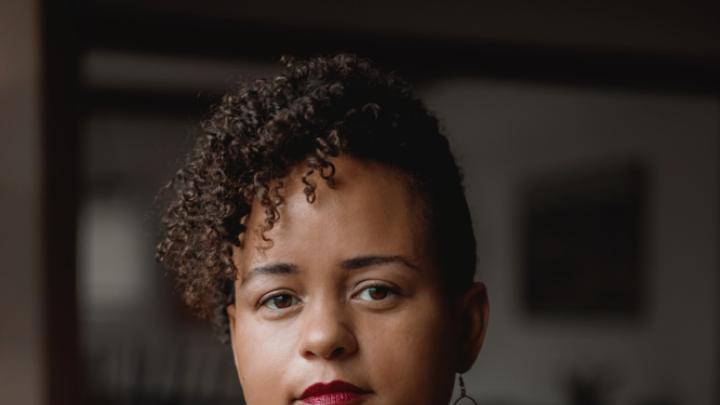As an undergraduate studying environmental systems technology at Cornell, Anyeley Hallová, M.L.A. ’03, wanted to give back to the black community. She would travel from Ithaca to her home in South Florida to encourage students from predominantly black high schools to apply to the Ivy League university. During a semester abroad in Costa Rica, she learned that sustainability—a concept she wanted to explore professionally—isn’t just about the natural environment. Social and economic components, including questions of access and equity, are vital, too. Though she carried these ideas with her to graduate school, equity wasn’t what people talked about in design and development circles when Hallová earned her master’s degrees in city planning and landscape architecture from MIT and Harvard, respectively. So, she pursued equity-related work in her private time, serving on the board of nonprofits like the Portland Housing Center. Then, in 2020, the murder of George Floyd shifted equity and social justice to the center of public and academic discourse.
Hallová, suddenly, felt a push to do something more.
“What if I could start a company that could bring my passion for equity into development and do it on my work time?” she thought.
Now, Hallová—named by the Urban Land Institute in 2016 as one of the best young land-use professionals around the globe—pursues equity-focused work full-time as a real estate developer herself. In 2021, she founded “Adre,” a company in Portland, Oregon, that builds wealth for black and other marginalized communities through property ownership and investment. “Adre,” in the West African language of Ewe, translates to “seven,” a sacred number that culturally represents excellence and completeness.
Before starting Adre, Hallová worked as an urban designer specializing in downtown master plans for cities in the Caribbean, and then managed projects for two mission-driven real estate development firms, Gerding Edlen Development and project^. At project^, where she was a partner for 12 years, Hallová led the Meyer Memorial Trust office space project, which last month won the 2022 Urban Land Institute Americas Award for Excellence, the highest recognition for a real estate development project. (Meyer Memorial Trust is a leader in equitable giving and investment in Oregon.) Leading a project where she “thought about equity from every angle,” she says, was also a seed that planted the idea for Adre.
Hallová seeks to identify the ways in which developments can perpetuate racial and economic inequality, and pivots toward solutions. She considers every step of a project’s legacy—who owns the land, who develops it, who designs the buildings, who constructs them, who occupies them, and ultimately, who owns them.
“Most firms in the real estate development landscape are not thinking about social equity and how to include minority women and emerging small businesses,” says Hallová. “All of our work is thinking about people who don’t traditionally have access to real estate investment or ownership.”
Portland—the whitest big city in America—has a history of black exclusion laws and racist mortgage lending policies that led to the mass displacement of black individuals and, consequentially, lack of black land ownership. During the past decade, rising real estate prices have forced nearly a third of the black population to the city’s outskirts, where black homeownership is now about half the rate of white homeownership. This is why Adre partners with Black, Indigenous, and People Of Color (BIPOC) land owners and has set a goal to ensure that 50 percent of its buildings are owned by women or BIPOC, and that 30 percent of the builders be minority or women-owned businesses. Additionally, when nonprofits own their buildings, they can use funds from their capital campaigns to directly create and develop spaces that serve their mission and program needs.
“A lot of times foundations and governments only give to programs, not buildings” she says. “But buildings influence how people interact with community.”

Building United Futures: home to Black United Fund and other BIPOC-serving organizations.
Courtesy of Adre / Mahlum Architects
Adre is a real-estate development firm, which means it sets the goals and concepts for its projects (sustainability, design, equity, and financing) and assembles the team—general contractor, architects, engineers, consultants—to design and construct them. The company purchases land and sources funding, too: generally a combination of equity, debt, and sometimes, grant money. After a building is constructed, Adre is responsible for managing it for its clients, whether by hiring a property manager to lease the space as a long-term asset or as a broker to sell it. From start to finish, Adre and Hallová execute the vision.
Adre has four projects in progress, most of them in the $10-$30 milllion range, varying from market-rate housing to office space and mixed-use affordable housing. One is the Building United Futures complex, being developed in partnership with the Black United Fund, the longest-standing black-led BIPOC-focused foundation in Oregon. The space, spanning 33,000 square feet, will house a consortium of businesses and programs that empower and engage BIPOC communities in Portland. Another is the Williams and Russell project, which will provide 168,000 square feet of affordable housing, office space, and homeownership opportunities to the black community. In these and other projects, the firm prioritizes environmental sustainability, minimizing carbon emissions and waste and utilizing LEED certified materials. Hallová is known for using cross-laminated timber, and layered wood paneling that generates almost no waste during installation. Natural lighting, clean lines, and efficient use of space are also signature characteristics of her work.
As a black woman, Hallová says of her experience in real-estate development, “We don’t see people like us in these fields” (only two percent of real-estate development companies in the United States have black leadership). “I want to be a leader in equitable development, and create projects that inspire other developers to think, ‘Yes, I can do that, too.’”
Thus far, Hallová’s career transition has been a success. Just last February, Adre won the first place prize of $40,000 at PitchBlack, an entrepreneurial competition for black-owned businesses in Oregon, and $10,000 for the Intel RISE Technology Award for sustainability. One of Adre’s new projects is a 19,000-square-foot office space for small BIPOC businesses in Albina, a neighborhood in Portland that has historically suffered from severe underinvestment as a consequence of redlining. These are examples of how Hallová continues to apply equity as a lens for resilience and sustainability in all of Adre’s projects.
“I want to think about shared ownership,” she says. “Architecture, city planning, design, all shape the environment we live in. It’s about including our community members, and not forgetting them.”









